Sreelatha Menon in New Delhi
The very people whom you would imagine to be supporters of Anna are against him for being exclusivist, high handed, and a stooge for right wing parties, writes Sreelatha Menon
Over 2,500 people happily detained in Chatrasal stadium in Delhi; thousands drenched in a downpour outside Delhi's Tihar jail; countless others protesting on streets across the country and on college campuses and courts -- these were the scenes that greeted the nation this week as the country's most famous ex-jawan-turned-Gandhian defied the government order to leave his current quarters at Tihar jail.
The fact that scores have stood shoulder to shoulder with 74-year old Anna following his arrest at his Delhi flat is perhaps more a testimony to the mounting public anger against brazen acts of corruption in the country, than any indication of concrete knowledge about Anna's Lokpal Bill draft.
Sure, people like Leo Saldanha, an environment activist from Bengaluru are livid at the high-handed way the government has acted and agrees with the Jan Lokpal Bill prescription of Team Anna.
...
'This wave cannot be called a movement'
However, what is remarkable is the number of civil society stawarts who have lined up to speak out against Anna and his methodology for civic protest.
"What are they protesting for? And do the people who are apparently standing for Anna realise what they are supporting," asks Nikhil De, a long time member of Mazdoor Kisan Shakti Sangathan (MKSS) and an associate of political and social activist, Aruna Roy, who is also a member in MKSS.
"I don't believe that a single law can remove corruption. What Anna says about the law being capable of removing 65 per cent of corruption is baseless. As for this wave, I don't think we can call this a movement, for that needs years of commitment," he adds
Then, there are those, like prominent activist Purushottaman Mulloli, who feel that the whole campaign is being scripted by political players with agendas -- namely right wing ideologues like the BJP and the RSS, specifically the youth wing -- with the 'India Against Corruption' itself being the construct of the latter.
Mulloli calls it strictly an upper caste, middle class urban phenomenon. "Do you see a single Dalit in the movement?," he asks.'There is a higher force moving the campaign, higher than Anna'
Activist Anil Chaudhury agrees with Mulloli.
The BJP at its national conference in Lucknow last year declared that corruption would be its electoral plank," he says.
"Months later, the 'India Against Corruption' campaign was announced. And the people in it were carefully selected. There is a higher force moving the campaign, higher than Anna Hazare," he adds.
As for the Lokpal formula, both Chaudhury and Mulloli oppose it.
"These people have no holistic view of development and they are people happy with the system and its privileges," Chaudhury.
"Corruption is the only problem they see and the way they deal with it is at the level of monetary corruption, which is just a small element in a larger picture of a distorted growth story," he adds.
'They are bullying the government to accept their view'
Shabnam Hashmi, activist and founder of human rights organisation Anhad, couldn't agree more.
Hashmi says that the Anna movement revives memories of 1992 when there was a frenzy similar to what was going on now that led to one of the worst carnages at the time, specifically the demolition of Babri Masjid.
As for the contents of the Jan Lokpal Bill, Hashmi wonders how Anna Hazare and his supporters can imagine that their views on a particular issue is superior to other views.
Hashmi who was part of the consultation that preceded the making of the Communal Violence Bill says that three nationwide consultations were held before the Bill was drafted.
The drafting committee itself consulted a large number of groups from across the country and tried its best to reconcile differences and accommodate views.
"But here they are bullying the Government to accept their view and blackmailing them with an indefinite fast. This is undemocratic," she says.
'Every critique was attributed to wrong intent by Team Anna'
Roy says that her attempts to suggest a different view point on the Bill were misunderstood and discouraged by Anna's team members in the drafting committee formed by the Government.
"Every critique was attributed to wrong intent and viewed with suspicion and mistrust by the civil society members of the Joint Committee," she says.
"Critique of the Bill has evoked sharp reactions, and statements have been made that no amendments or changes to the principles or the framework is possible, and that disagreement with the draft was tantamount to promoting corruption. We were baffled by such statements," she adds.
'It is an upper caste, middle class movement'
However, some of the strongest criticisms of the movement comes from Dalit rights activists who feel that not only has the movement kept them out, the draft Bill they have made also does not ensure access to Dalits.
"It is an upper caste, middle class movement and it addresses their issues -- such as bribes paid to the police or at passport offices. Peasants, vulnerable sections don't fall in their purview," says activist Arun Khote, echoing Mulloli.
"How many SC/STs dare to file cases in police stations? Barely five per cent cases are filed and 92 per cent are acquitted. In such a situation, how can a Lokpal be of any use to the Dalits?" he asks.
Khote says that the creation of a new law cannot be a solution for non-implementation of old laws. He feels that if the anti-corruption Act is implemented properly, it would be more than sufficient.
According to Khote, corruption is the outcome of dominance of one section of society over the other. When people want to dominate they accumulate wealth to improve their clout. This leads to corruption.
Khote says that team members like Prashant Bhushan and Medha Patkar have never fought for the causes of Dalits.
'We are only asserting the right of the people to oppose the govt draft'
Arvind Kejriwal, who is a former government servant, head of NGO 'Parivartan' and now part of Anna's team feels that Team Anna's motives have been misconstrued.
"We have never said that our draft should be passed in Parliament. We are only asserting the right of the people to oppose the draft that has been presented in Parliament and demanding that our draft be discussed there," he says.
Anna's cohorts are also infuriated by being labelled puppets in the hands of political parties and groups.
"We are independent and it is an insult to the people of this country to say that our supporters are all workers of a particular group" says Kiran Bedi another member.
Abhinandan Sejhri, a worker of 'India Against Corruption', says that "the socio-economic divide has for the first time been bridged by the spontaneous support that Anna has received from all classes."
Prashant Bhushan agrees.
"Anna Hazare has himself said that the movement was for bridging the divide in the rich and poor, it was for those lakhs of ordinary people who have nowhere to go to seek help," he says.

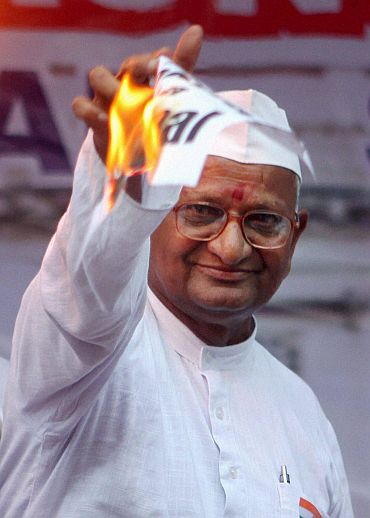

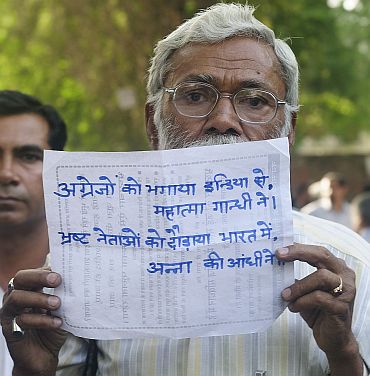
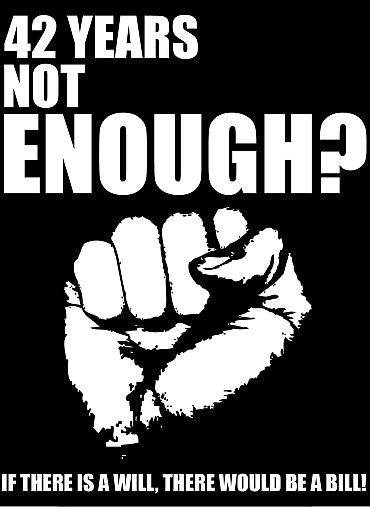
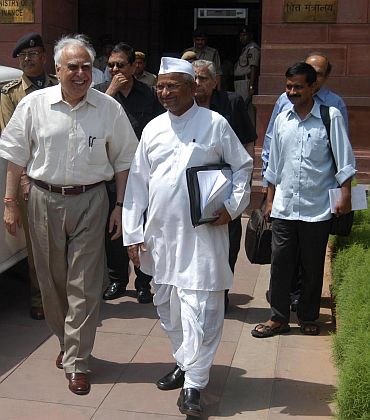
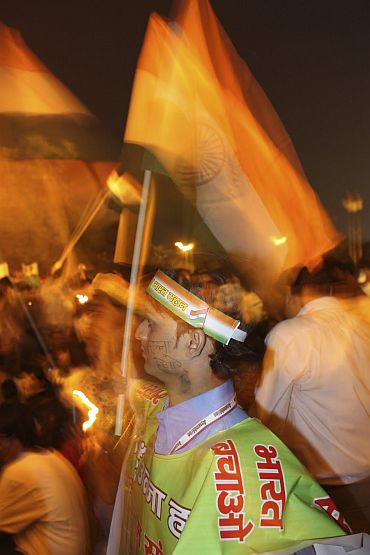


article